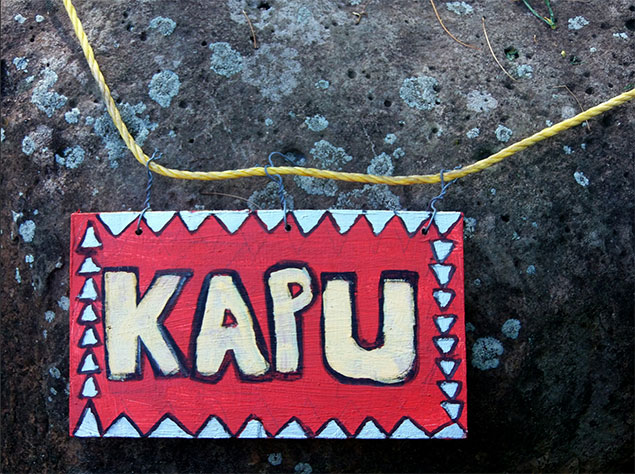Kapu is a familiar word in Hawaii. It’s usually seen posted on a sign signifying something that’s off-limits or forbidden (think the word “taboo”) like private property or a patch of thorny kiawe trees.
But did you know that kapu is much more than that?
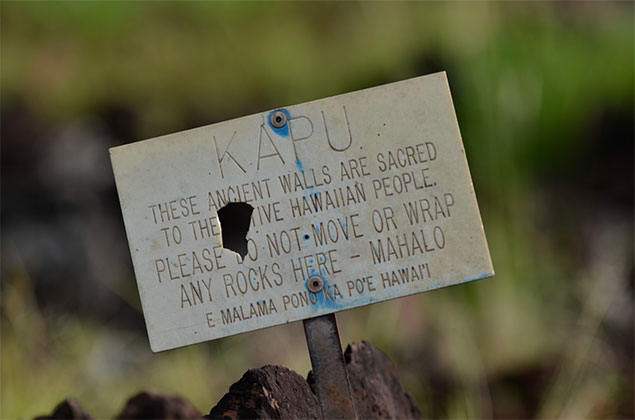
In traditional Hawaiian culture, kapu is system of law and order that carries two meanings:
- that which is sacred
- the laws that protect this sacredness
The ruling chiefs (ali’i) of ancient Hawaii were kapu because they were believed to be descended from the gods. Everything about an ali’i was kapu, including their home, clothes, eating bowl and sometimes even their shadow!
Commoners (maka’ainana), on the other hand, were considered noa, which means “free” — the opposite of kapu or sacred. The kapu existed to protect the ali’is’ mana, or power. The greater the mana, the stronger the kapu.
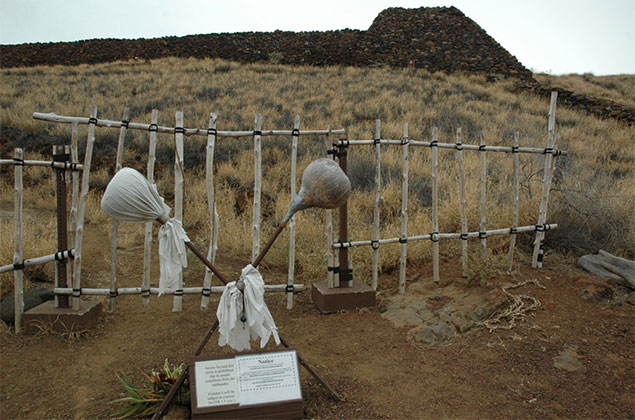
The two crossed sticks are the kapu symbol, as seen here at the Pu’ukohola Heiau on the Big Island
The kapu determined the protocols of how a maka’ainana could approach an ali’i, who in turn were responsible for enforcing the kapu. Violating a kapu, therefore, was akin to “stealing” an ali’i‘s power.
Just like today’s judicial system: the bigger the violation of law, or kapu, the bigger the punishment.
How kapu can make your life better
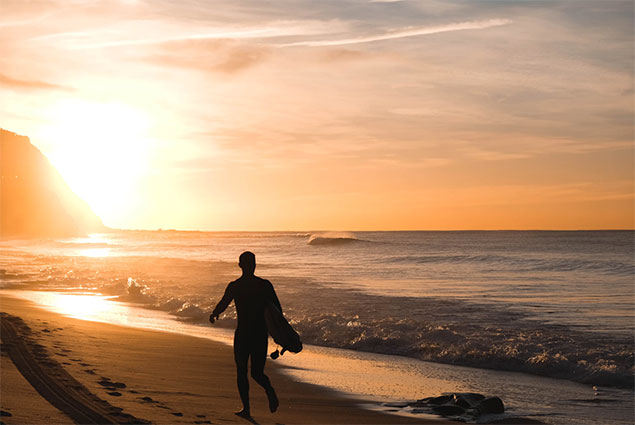
While the kapu system of ancient Hawaii is no longer in practice, it stills carries enormous value in today’s world.
When it comes to enhancing your own life, think of kapu as a simple way to protect and nurture the things most sacred to you. You can follow your personal kapu system to help you live better.
For example, I personally have to exercise for no less than one hour per day, 6 days a week. Working out gives me a great deal of clarity and positive energy to get things done, stay healthy, feel good and work all week at my desk!
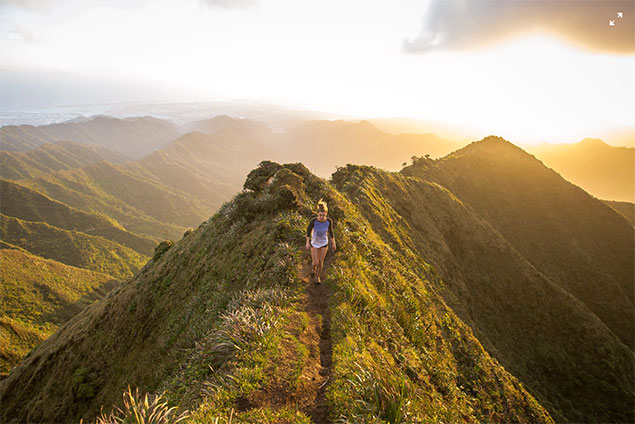
Exercise, therefore, is kapu to me (sacred), but it’s also kapu for me to break (forbidden) by skipping it for more than one day in a row.
I have to enforce my exercise kapu as well: no matter how busy or crazy my work day or family life is going, I always stop what I’m doing to go on a run, visit the gym or go surfing.
It’s not always easy to do this — sometimes it feels like I’m abandoning my colleagues or kids — but I always feel better afterwards, and I always regret the days I break my kapu.
Exercise is just one kapu that helps me live better. Focused work and quality family time are others. So is writing, meditation and making meaningful connections with people.
Kapu the bad things, too
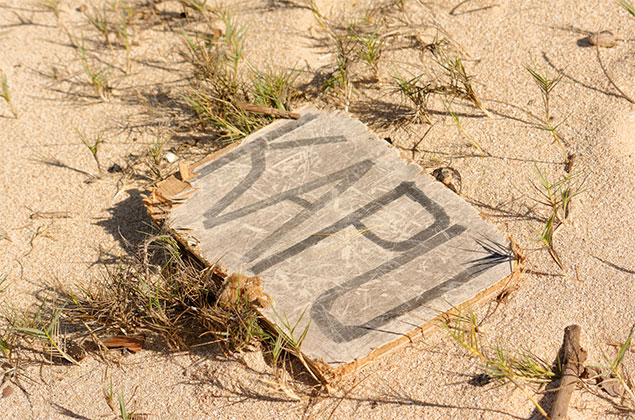
I think it’s equally important to kapu things that are potentially harmful. For example — overeating and over-drinking, spending too much time on a smartphone and other indulgences.
Kapu can help you live a better life. It’s all about balance!
***
Need a hand with your next Maui vacation? Please contact the Sunny Maui Vacations team at info@sunnymauivacations.com or call 808-240-1311, ext. 21. We’ll find you the best vacation rental condo or home in South Maui and help you with any and all recommendations and activities across Maui (chat with our in-house Concierge at extension 71).
Image credits: maynard, w0lfie, danramarch, Richard Masquelier, Kalen Emsley, caretta71
Need a hand with your next Maui vacation? Please contact the Sunny Maui Vacations team at info@sunnymauivacations.com or call 808-240-1311, ext. 21. We’ll find you the best vacation rental condo or rental home in South Maui and help you with any and all recommendations and activities across Maui.

